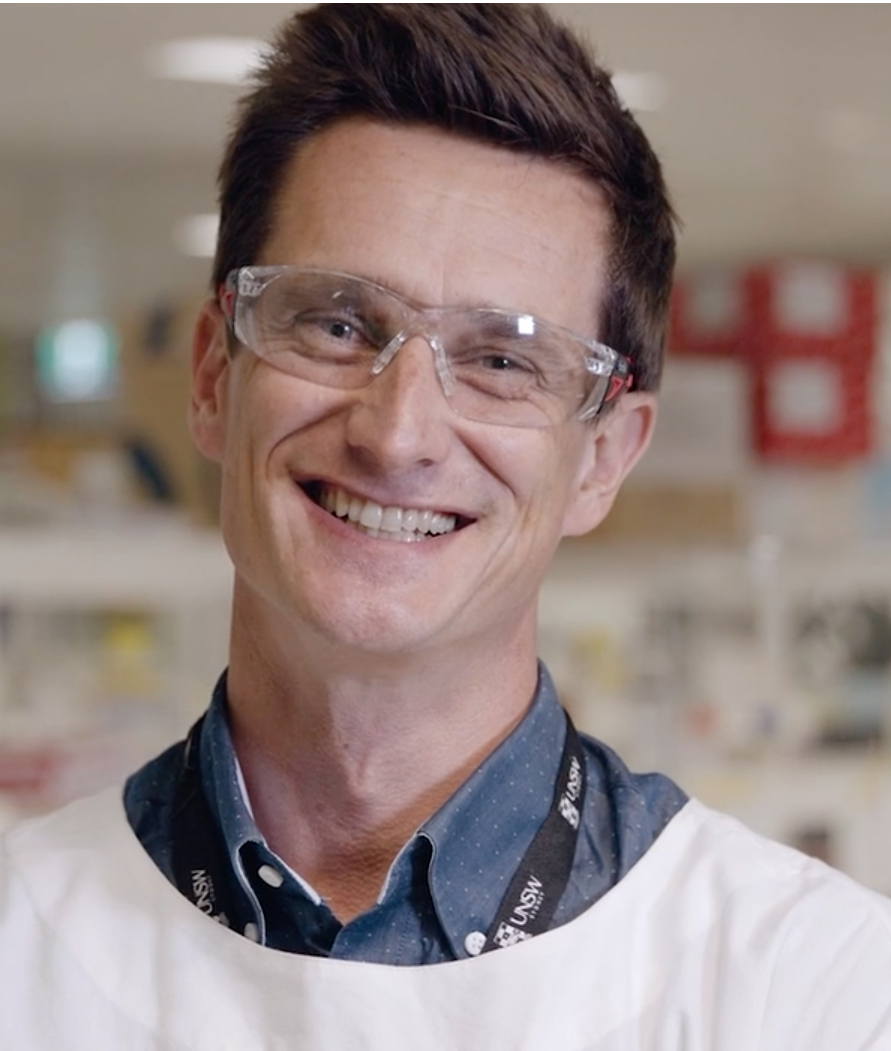
Keywords
Fields of Research (FoR)
Oncology and Carcinogenesis, Haematological Tumours, Cancer GeneticsSEO tags
Biography
I joined the Institute in January 2019 to establish a new team to work on one of the most difficult to treat blood cancers in children: T-cell acute lymphoblastic leukaemia (T-ALL). A molecular and cellular biologist with over 10 years’ experience researching blood cancers, with a unique skill set combined with a passion to see my research make a difference in people’s lives.
‘Children with T-ALL are high-risk and so receive a very...view more
I joined the Institute in January 2019 to establish a new team to work on one of the most difficult to treat blood cancers in children: T-cell acute lymphoblastic leukaemia (T-ALL). A molecular and cellular biologist with over 10 years’ experience researching blood cancers, with a unique skill set combined with a passion to see my research make a difference in people’s lives.
‘Children with T-ALL are high-risk and so receive a very intensive chemotherapy regimen. Many of these children suffer long-term effects of this aggressive treatment and can also develop a treatment-induced secondary cancer. There is therefore a great need for targeted therapies to be developed that can minimise these effects.’
Before joining the Institute, I worked at VIB-KU Leuven Center for Cancer Biology in Belgium, where my research focused on understanding the molecular biology of leukaemia. Here, I developed expertise in a number of cutting-edge technologies including next-generation sequencing and genome editing.
As Team Leader in the Functional Genomics of Leukaemia Group, I am focused on developing highly specialised mouse models that will be used to improve our understanding of how T-ALL develops, as well as to study the efficacy of newly developed therapies.
To date, my research has resulted in 59 peer-reviewed publications, many of which are in high-impact journals such as Cancer Cell, Cancer DIscovery and Leukemia. I have also given numerous international presentations, including as an invited plenary speaker, and hold an appointment as Conjoint Senior Lecturer in the Faculty of Medicine at UNSW Sydney.
My Qualifications
2006 PhD (Cancer Biology), University of New South Wales, Australia
2000 MSc (Medical Science), First Class, University of Auckland, New Zealand
1998 BSc (Pharmacology), University of Auckland, New Zealand
My Awards
2021 Haematology Society Australia and New Zealand (HSANZ)/ Snowdome Mid-career award
2017 True Colours/VIB 4-day leadership program
2017 Technology transfer and the exploitation of research, KU Leuven. Team awarded 1st place for exploitation plan.
2008 New South Wales (NSW) Office of Science and Medical Research Award for Best Postdoctoral Oral Presentation; ASMR NSW Meeting.
2004 St George Hospital Clinical School “Young Investigator of the Year”
1998 Fowlds Memorial Prize for most distinguished student in the Medicine and Health Science Faculty, University of Auckland, New Zealand
1997 Senior Prize in Pharmacology, University of Auckland, New Zealand
My Research Activities
Personalised anti-cancer therapies have the potential to transform cancer treatments.
We now appreciate that at diagnosis, patients with T-cell leukaemia have more than 10 mutations. Some of these mutations will be sufficient to cause leukaemia, but the role of the majority of these mutations remains unknown.
My research program is focussed on defining the functional role for mutations found in T-cell acute lymphoblastic leukaemia. We utilise a “functional genomics” approach, that is creating in vitro and in vivo mouse models of T-cell leukaemia using clinically relevant mutations, to identify the key proteins and signalling pathways that should be targeted to control the disease.
This knowledge on which proteins and mutations are essential to drive the growth and survival of leukaemia cells will significantly improve our ability to use targeted agents based on an individual’s mutation signature.
My Research Supervision
Areas of supervision
Currently, I have several projects for enthusiastic, motivated and passionate Honours, ILP or Ph.D. students in 2021. Feel free to reach out should any of these appeal to you.
(1) Long read sequencing to characterize the alternatively spliced transcriptome downstream of mutant JAK3 signaling in T-cell acute lymphoblastic leukemia.
In this project we will be using nanopore sequencing technology to look at the spliceosome in patients derived xenograft samples that harbour mutations in the IL7-JAK-STAT signaling pathway. Novel splice isoforms will then be modeled using our in vivo bone marrow transplant model system to determine their role in the maintenance and progression of the disease.
(2) Epigenetic profiling and eradication of relapse-initiating cells in paediatric acute lymphoblastic leukaemia
This project will investigate the following Hypotheses: (1) epigenetic modifications in subpopulations of ALL cells in the bone marrow provide a survival advantage during exposure to chemotherapy in vivo resulting in relapse; (2) Reversing these epigenetic aberrations will eradicate drug-resistant ALL cells and prevent relapse.
(3) The role of the FAT1 cadherin in Acute Lymphoblastic Leukaemia.
In this project, we will investigate targeting FAT1 cadherin positive acute lymphoblastic leukaemia with novel nanoparticles loaded with chemotherapeutics. The molecular role of FAT1 will also be investigated with respect to protecting cells from cell death, cellular homing in vivo and role in metabolism.
Location
UNSW Australia
PO Box 81 Randwick 2031 Australia
Map reference (Google map)